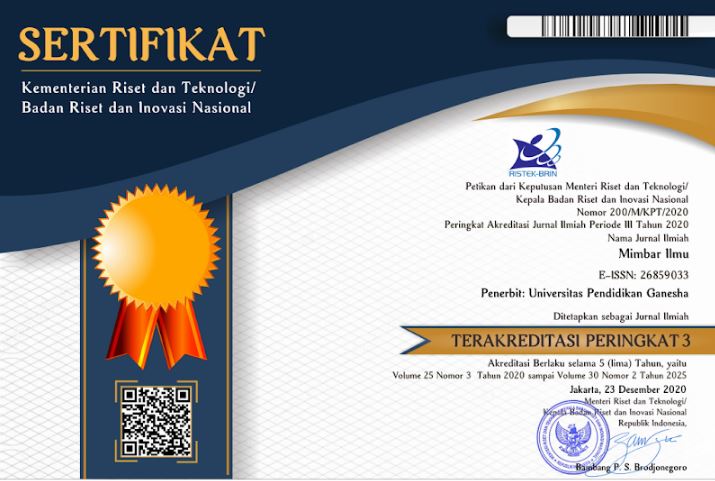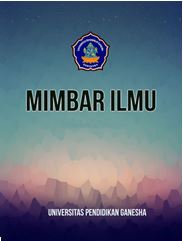The Effectiveness of Early Science and Mathematics Development E-Modules to Improve Early Childhood Concept Understanding
DOI:
https://doi.org/10.23887/mi.v29i2.84541Kata Kunci:
E-Module, Early Childhood Education, Science and MathematicsAbstrak
In today's digital era, learning that used to only be carried out face-to-face is increasingly shifting to hybrid. Where all universities implement online and offline learning. This study aims to evaluate the effectiveness of using e-modules in early science and mathematics development to improve conceptual understanding in early childhood. E-modules designed interactively and based on multimedia are used as teaching aids for children aged 4-6 years. The research method used is a quasi-experimental with a pre-test and post-test design in two groups, namely the experimental group using e-modules and the control group using conventional learning methods. The results showed that children in the experimental group experienced a significant increase in conceptual understanding compared to the control group, with an average increase in mathematical concept understanding. In addition, e-modules have also been shown to increase children's interest in learning and active involvement in the learning process. Obstacles faced during the study included limited access to technology and the need for training for teachers to optimally utilize e-modules. In conclusion, e-modules for early science and mathematics development are effective in improving conceptual understanding in early childhood, as long as they are supported by adequate infrastructure and good teacher competence in operating them.
Diterbitkan
Cara Mengutip
Terbitan
Bagian
Lisensi
Hak Cipta (c) 2024 Nurul Khotimah, Pamuji, I Gede Astawan

Artikel ini berlisensiCreative Commons Attribution-ShareAlike 4.0 International License.
This work is licensed under a Creative Commons Attribution-ShareAlike 4.0 International License.
Authors who publish with this journal agree to the following terms:
- Authors retain copyright and grant the journal right of first publication with the work simultaneously licensed under a Creative Commons Attribution License that allows others to share the work with an acknowledgment of the work's authorship and initial publication in this journal.
- Authors are able to enter into separate, additional contractual arrangements for the non-exclusive distribution of the journal's published version of the work (e.g., post it to an institutional repository or publish it in a book), with an acknowledgment of its initial publication in this journal.
- Authors are permitted and encouraged to post their work online (e.g., in institutional repositories or on their website) prior to and during the submission process, as it can lead to productive exchanges, as well as earlier and greater citation of published work.








